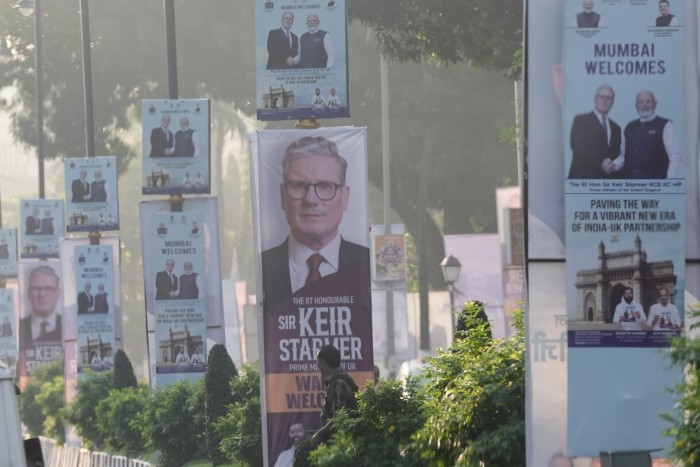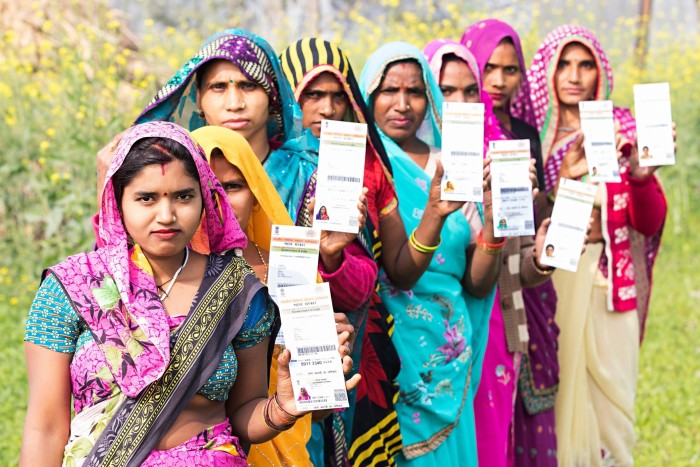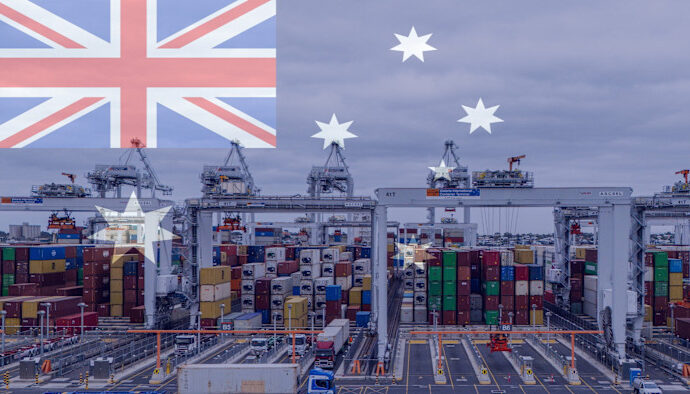Unlock the Editor’s Digest for free
Roula Khalaf, Editor of the FT, selects her favourite stories in this weekly newsletter.
Sir Keir Starmer has hailed India’s national digital identification programme as a “massive success” as the British prime minister said his scheme could lead to the public using IDs to access a range of services.
Starmer held talks on Tuesday with Nandan Nilekani, co-founder and chair of Indian tech services group Infosys, who was also the first chair of the Unique Identification Authority of India, the government body which delivered the giant ID database more than a decade ago.
The prime minister shrugged off criticism of India’s national digital ID programme, which has become crucial for access to that country’s welfare system.
Speaking during a trade visit to Mumbai, he said India had “already done ID and made a massive success of it”.
Starmer said that while most of the discussion about ID cards had been around immigration, he believed they could be “good passports” for British citizens in other ways.
“There is a case to be made about the benefits of voluntary ID into other areas, and obviously we need to make that case,” he said. “I don’t know how many times the rest of you have had to look in the bottom drawer for three bills when you want to get your kids into school or apply for this or apply for that, it drives me to frustration.”

The prime minister’s spokesperson said digital ID cards in Britain could be used on a voluntary basis for easer access to services including welfare, childcare and driving licenses.
It comes as more than 2.8mn people have signed an online parliamentary petition against the introduction of digital ID cards in the UK.
The proposed scheme would give every person with a legal right to be in the UK a digital ID accessible on their phones. It would aim to make it easier for employers to be able to tell who has the right to work in the country.
People will not be required to carry the ID but it will be compulsory for right-to-work checks.
Starmer’s spokesperson said the prime minister had sought the meeting with Nilekani to learn lessons from the Indian project.
The spokesperson said the UK government planned to build its own ID card system within the public sector rather than through a private outsourcing company.
India began issuing a 12-digit unique identity for Indian citizens and residents 16 years ago under a programme called Aadhaar, which has more than 99 per cent penetration in the country today. The project has faced challenges on weak data protection framework and inadequate privacy protection concerns since the beginning.
The country’s supreme court has struck down petitions challenging the project. However, it has restricted its mandatory use to largely welfare schemes, helping curtail corruption and fraud. Activists, though, continue to highlight that biometric authentication using Aadhaar has led to some of the most marginalised being excluded from accessing welfare benefits at times.

As a universal digital identity, Aadhaar has also become the bedrock for India’s domestic online payments network, which has become the world’s largest, and enabled people to easily access capital markets, contributing to the country’s booming domestic investor base.
Starmer has previously claimed Aadhaar had saved the Indian government $10bn a year by reducing fraud and leakages in welfare schemes.
But several advocacy groups have contested that figure, claiming the scale of the savings has been overstated.


